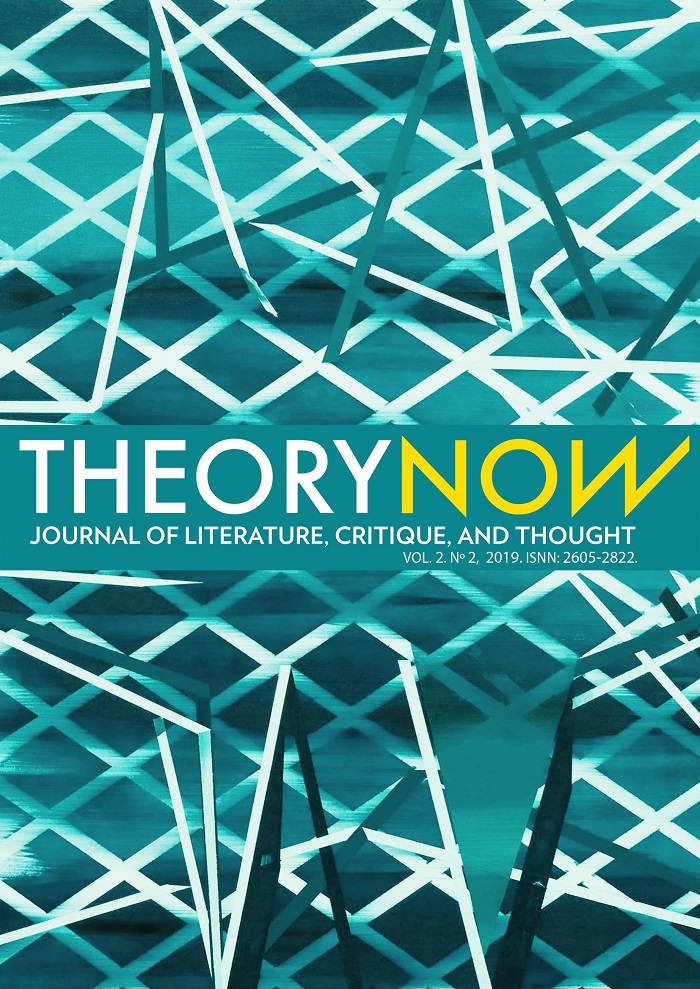Farewell to mother language: foreign language writing as an act of disidence. The case of José María Blanco White
DOI:
https://doi.org/10.30827/tnj.v2i2.9634Keywords:
polyglossia, glotopolitics, Spanish literature, linguistic identity, religious dissidence, political dissidence.Abstract
This article discusses the relationship between José María Blanco White, his adoptive tongue, English, and his mother language, Spanish. Living in exile in England since 1810, the author from Sevilla expresses his will to become an English man of letters whilst abandoning Spanish in his literary writing. This linguistic renounce is an act of political and religious dissidence, as well as a step forward in his intellectual evolution. Even though Blanco White becomes a successful literary author in England, writing in his adoptive tongue, he never manages to fully break his relationship to Spain neither he quits completely writing in Spanish. This paper also discusses how his supposed English identity is an imaginary construction in which Blanco White is willing to break with his roots, even though he is inevitably attached to them.Downloads
References
Almeida, Jocelyn M. Reimagining the transatlantic, 1780 – 1890, Farnham, Ashgate, 2011.
Anderson, Benedict. Imagined Communities, London, Verso, 2006.
Bivort, Olivier. “Le romantisme et la langue de Voltaire.” Revue italienne de études françaises, 3, 2013. Disponible en: http://journals.openedition.org/rief/211 y DOI: 10.4000/rief.211. Consultado el 19.06.2019.
Blanco White, José María. Antología de obras en español. Ed. Vicente Llorens, Barcelona, Labor, 1971.
Blanco White, José María. Autobiografía de Blanco White. Traducción de Antonio Garnica, Sevilla, Universidad de Sevilla, 1975.
Durán López, Fernando. (2009). “Blanco White y Walter Scott”. Cuadernos Dieciochistas, 10, pp. 247-262.
Durán López, Fernando. José María Blanco White o la conciencia errante, Sevilla, Fundación José Manuel Lara, 2005.
Durán López, Fernando. Versiones de un exilio. Los traductores españoles de la casa Ackerman (Londres, 1823-1830), Madrid, Escolar y Mayo, 2005.
Ette, Ottmar. ZwischenWeltenSchreiben. Literaturen ohne festen Wohnsitz, Berlín, Kadmos, 2005.
Gelléri, Gábor. Philosophies du voyage. Visiter l’Angleterre aux 17e-18e siècles, Oxford, University Press, 2016.
Hobsbawn, Eric. Nation and Nationalism since 1780: Programme, Myth, Reality, Cambridge, University Press, 1992.
Martínez González, Antonio. “Exilio político e intelectual. La filología en el siglo XIX”. Estudios sobre filología española y exilio en la primera mitad del siglo XIX, Fernando Durán López y Victoriano Gaviño Rodríguez (eds.), Madrid, Visor, 2016, pp. 453-477
Menéndez Pelayo, Marcelino. Historia de los heterodoxos españoles. Madrid, Librería católica de San José, 1880-1882. Disponible en: http://www.cervantesvirtual.com/obra-visor/historia-de-los-heterodoxos-espanoles/html/. Consultado el 10 de abril de 2018.
Mercier Favire, Anne-Marie. “La nation par la langue: philologie, nationalisme et nation dans l’Europe du dix-huitème siècle”. Nation and nationalisms: France, Britain, Ireland and the eighteenth-century context. Michael O’Dean and Kevin Whelan (eds.), Oxford, Voltaire Foundation, 1995, pp. 161-180.
Murphy, Martin. Blanco White. Self-banished Spaniard. New Haven and London, Yale University Press, 1989.
Subirats, Eduardo. “Siete tesis contra el hispanismo”. Revista de Humanidades: Tecnológico de Monterrey, 17, 2004, pp. 149-166.
Yildiz, Yasemin. Beyond the Mother Tongue. The Postmonolingual Condition, New York, Fordham University Press, 2012.
Downloads
Published
How to Cite
Issue
Section
License
Theory Now. Journal of Literature, Critique, and Thought is an immediate open-access publication which is available at no cost for readers and authors alike. Authors are not charged any kind of fee for the editorial processing of their articles. Reading, downloading, copying, distributing, printing, searching, linking or reusing all published articles for non-commercial uses is allowed on the condition of citing the author, the journal and the editing body. All intellectual material published in this journal is protected under a Creative Commons Attribution-NonCommercial 3.0 Spain license.
Dissemination of the articles in social (Facebook, Twitter, Linkedin, etc.) and scientific networks (ResearchGate, Academia.edu, etc.), public repositories at universities and other institutions, blogs, personal or institutional websites, Google Scholar, ORCID, ResearchID, ScopusID, etc. is strongly encouraged. In all cases, the intellectual property of the articles and any possible monetary profits derived from them belong exclusively to the authors.













